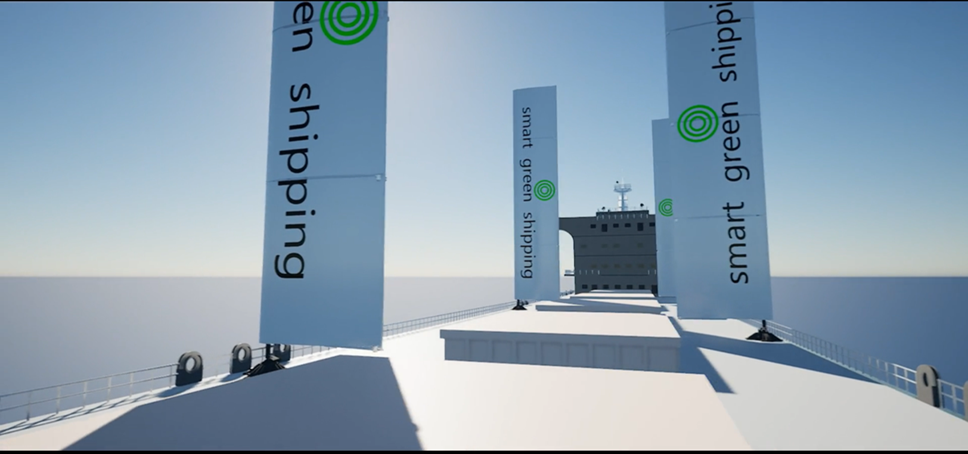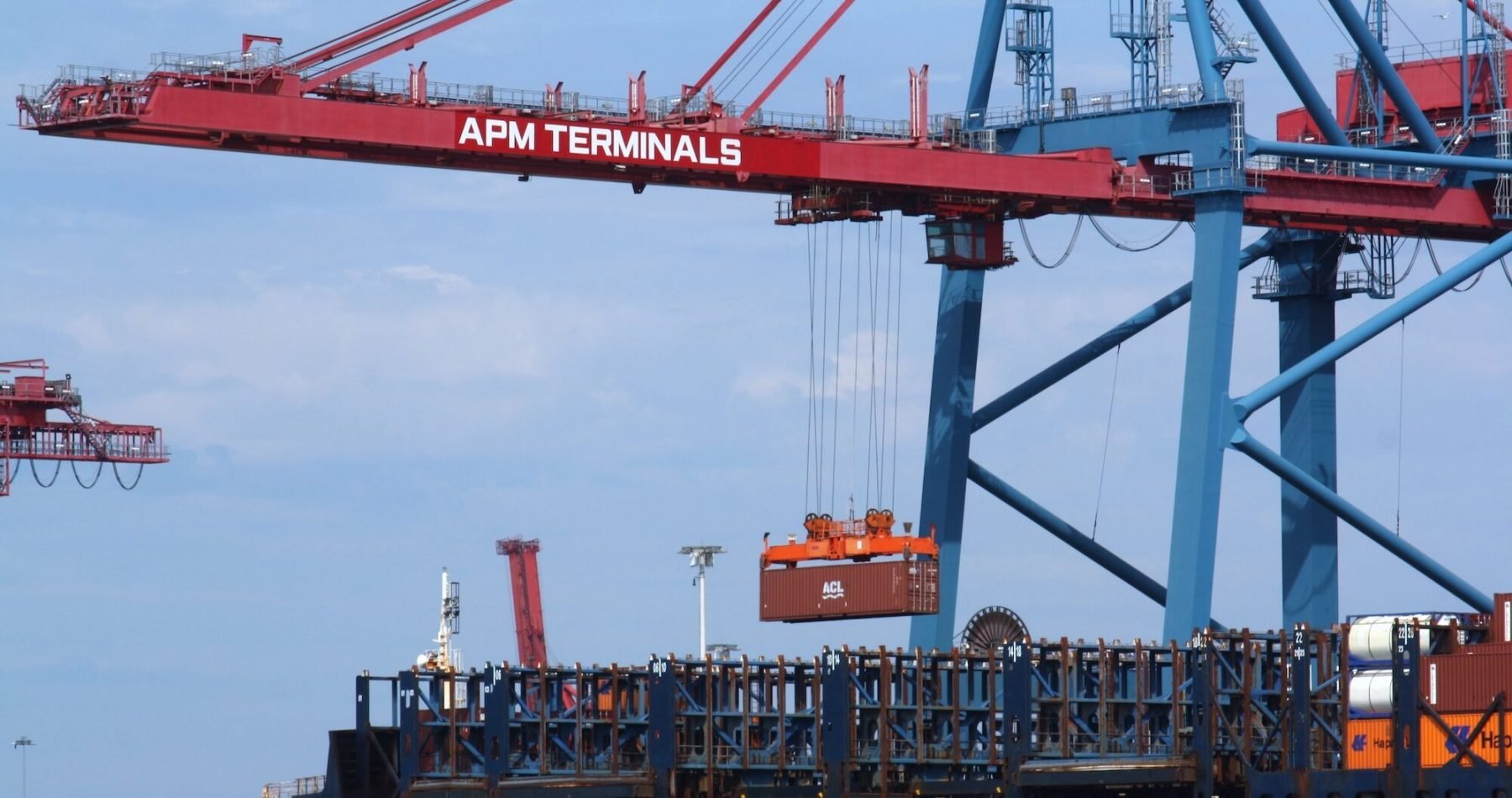
Press & Media
Safety4Sea - Wind can catalyse shipping’s green transition
Shipping is racing to comply with stringent emissions regulations and targets. Faced with multiple ‘fuels of the future’ and the associated spectre of stranded assets, the industry is overlooking a sustainable solution that should, quite literally, blow them away, says Diane Gilpin, CEO of Smart Green Shipping.
Riviera - Wind propulsion returns to commercial vessels
Craig Jallal - Riviera
It has taken a raft of regulatory initiatives, but finally, wind is back on the agenda as a main source of propulsion
Free-to-use wind as a source of energy across vessel types is firmly back on the agenda. The current projects based on wind power fall into two camps: one involves maximising available wind to provide a main source of propulsion.
The second is to use wind to provide propulsive assistance. This is more typical of retrofit installation projects, such as trials undertaken with rotor sails by Finland’s Norsepower. Like the sailing ships of a century ago, the choice of which type of wind power and the propulsive unit depends on the voyage length and frequency of port calls.
Seatrade Maritime news - Wind-assistance can drive profitable and sustainable shipping
Maritime's singular focus on alternative fuels ignores a source of free renewable energy that has powered maritime trade for millennia.
CBBC - Climate Change: Ships could use wind power to sail again
When most people think of sailing ships, they think of cannon filled boats and pirate ships from centuries ago.
But some scientists in the UK haven't been thinking of them as something from the past, but as the future instead.
They think new hi-tech sails could be fitted to ships to help them move without using as much fuel and be more environmentally friendly.
Scientists in Southampton have just been given some funding to do experiments to see how well they will work.
Splash247 - Shipping’s green bullet
Shipping’s singular focus on alternative fuels to lower costs and GHG emissions ignores the most immediate renewable energy solution: Wind. New technologies make this established solution the best short term propulsion answer, says Diane Gilpin, CEO of Smart Green Shipping.
The ongoing climate emergency makes the need to reduce emissions from shipping more urgent than ever. The best way to lower emissions is to use less fuel onboard ships, which will also result in lowered fuel costs – and, if handled correctly, less operational complexity.
At present, maritime has an overwhelming focus on low-carbon fuels, with options such as LNG, ammonia and hydrogen being trialled onboard ships and discussed at forums such as the IMO. However, progress has been slow, the transition will be expensive and many shipowners are frustrated with a lack of clarity, which leaves them vulnerable to stranded assets and unpredictable fuel cost risks.
Fathom World - Finance/Funding, Wind propulsion…and even more. UK wind-assist pioneers forge ahead with further funding wins
Craig Eason - Fathom World
Hot off the back of £1.8m feasibility funding from the Scottish government, and an undisclosed level of investment by Japanese shipowner MOL, Smart Green Shipping has announced further funding from the UK.
The company, which has a wind-assist design for commercial vessels, is one of 19 projects to receive funding from a £60m government initiative focused on developing clean marine solutions.
The UK Clean Maritime Demonstration Competition is aimed at showcasing the potential for UK-based industries to push forward decarbonisation and position the country in the race to develop a new set of commercial opportunities.
In the press statement from SGS, founder and CEO Diane Gilpin is quoted saying: “I’m thrilled that the UK is demonstrating ongoing faith in our FastRig technology, which holds the key to rapidly reducing emissions from shipping. Wind power, harnessed using sophisticated digital software and well-engineered equipment, is at present the fastest way for the sector to reduce fuel consumption and related emissions.”
Scottish Enterprise - £5m Smart Green Shipping project set to turn the tide to make shipping 20% greener
Smart Green Shipping, a systems design and engineering company, aims to lead global shipping’s green transition through unique industry collaboration with Malin, Drax and the shipping sector with targets to reduce greenhouse gas and fuel costs by at least 20% via high tech sails. The project is supported by Scottish Enterprise, industry partners and private investors.
The Telegraph - Navigating a cleaner future for shipping industry
Rachel Millard - The Telegraph
At 337 metres, Carnival’s Aidanova cruise ship is longer than The Shard building is high. And with 5,200 rooms, it has more space to house guests than Caesars Palace in Las Vegas. When the ship was christened in 2018, more than 25,000 people attended its naming ceremony at the Meyer Werft shipyard in Papenburg, Germany.
Passengers who joined the maiden cruise around the Canary Islands may have been unaware of the ship’s other distinction. Aidanova was also the world’s first cruise ship powered by liquefied natural gas, in a shift away from the treacly bunker fuel and diesel that powers most of the world’s big ships, to try to cut sulphur, nitrogen and carbon emissions.
China Dialogue Ocean - Is Green Shipping on the Horizon?
Isabelle Gerretsen - China Dialogue Ocean.
There are some positive signs but slashing shipping emissions requires much more innovation, carbon taxation and political will
British power generation company Drax partnered with Smart Green Shipping Ltd (SGS), Danish dry bulk cargo transporter Ultrabulk A/S and Humphreys Yacht Design, the naval architects of Dame Ellen McArthur’s ‘Kingfisher’ yacht, to collaboratively tackle the issue of CO2 emissions from the shipping industry.
The Business Magazine - Shipping industry reduces carbon emissions with Wiltshire based space technology
By Nicky Godding - The Business Magazine
A UK start-up based in Devizes, Wiltshire is using satellite data to develop technology that will help the shipping industry reduce its CO2 emissions.
Around 90 per cent of everything we consume is moved by sea, and as world trade continues to grow, there is an increasing number of ships crossing our oceans, each using vast amounts of energy.
The shipping industry is responsible for around 940 million tonnes of CO2 annually, which is at least 2.5 per cent of the world’s total CO2 emissions.
The International Maritime Organszation has set a target for it to cut these emissions by half by 2050.
Outrage + Optimism - The future of shipping
Outrage + Optimism
This is our third episode of an Outrage + Optimism investigative series on The Future of Transport.
With 2020 barely in the rearview mirror, the pandemic rages on across the globe, new variants bringing concern and unified collective action to the forefront as a rapidly developed vaccine begins being administered as we speed into 2021.
IMechE TV: Decarbonising the Shipping Industry
IMechE TV
1,138 views 15 Apr 2020
Chief Engineer Dr. Jenifer Baxter and Founder CEO of Smart Green Shipping Alliance Diane Gilpin discuss the modern-day challenges encountered with decarbonising the shipping industry and how combining 21st-century fuel-saving technologies is reducing emissions.












